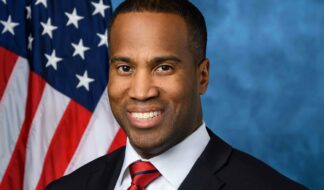By Jay Kaplan
Last week was a very important step forward for nondiscrimination protections for LGBT people. The Equal Employment Opportunity Commission, the federal agency assigned to investigate complaints of employment discrimination in violation of federal law, issued a decision that employment discrimination based on sexual orientation discrimination is a form of sex discrimination in violation of Title VII of the Federal Civil Rights Act. Back in 2012 the EEOC issued a similar ruling that transgender employment discrimination, based on gender identity or expression, is also a form of sex discrimination in violation of federal law. The basis for both of these decisions is that in each of these cases the discrimination was motivated by gender stereotyping, in other words the employer's perspective that the gay or transgender employee failed to conform to the employer's notions of gender conventions. In Complainant v. Department of Transportation Safety, a gay male alleged that he was not selected for a permanent position as Front Line Manager because he is gay. He also alleged that his supervisor made several negative comments to him about his sexual orientation, which included admonishing him for mentioning his partner with, "We don't need to hear about that gay stuff."
Both these rulings are landmark advances for LGBT civil rights. That is because protections against discrimination based on sexual orientation and gender identity are almost nonexistent in federal law and lacking in 28 out of 50 states, including Michigan. Now anyone, in any part of the country, who works for an employer with 15 or more employees, can file a charge of sex discrimination with the EEOC if they are discriminated against because of their sexual orientation and gender identity, where the facts indicate gender stereotyping occurred.
A huge step forward, but there are limitations. First of all, while the EEOC's interpretation of sex discrimination is now clear, not all federal courts agree that this theory applies to LGBT people. Second, the ruling doesn't address all incidents of discrimination that LGBT people face in every day in Michigan. The rule is not binding on businesses with fewer than 15 employees (which make up the majority of Michigan employers) and it doesn't change the fact that under current Michigan law, LGBT people can be discriminated against in housing and public accommodations (including a hotel or a restaurant or accessing medical services). We need to continue our efforts to amend Michigan's Elliott-Larsen Civil Rights Act to specifically include the categories of sexual orientation and gender identity. We also need support efforts to pass federal laws that specifically prohibit LGBT discrimination in employment, credit, housing and public accommodation so that we have clarity within all our federal courts. We believe that everyone should be provided with one set of clear rules that everyone knows and everyone can follow.
The public support is there. Seventy percent of all Americans, including 65 percent of Republicans, support comprehensive nondiscrimination protections for LGBT people. With such strong support, we need to both encourage and persuade our elected leaders to pass legislation that accomplishes this. Make no mistake, the EEOC ruling is definitely something to celebrate and it is definitely progress. But it's not the whole enchilada. Let's keep working for comprehensive LGBT civil rights protections so that there can be no disagreement that LGBT people are entitled to fairness and dignity in all aspects of life.









